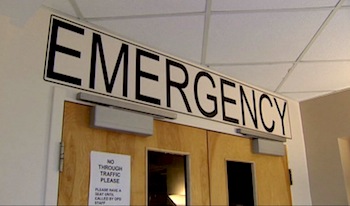22 Sep Six things the NDP did right — part one
In two posts earlier this month (here and here), I described six mistakes by which the NDP government brought itself to the brink of defeat. Darrell Dexter’s government also did several big things right, in some cases defying popular sentiment to put the province on a sensible course. Here’s the start of my “good things” list:
1. A balanced budget
I know, I know, they didn’t balance it by much, and if you listen to the two guys hankering for Dexter’s job, they didn’t balance it at all. The opposition leaders base their skepticism on the fact that certain charges have been paid forward, lessening the impact in the current fiscal year.
Against this predictable naysaying comes the verdict of three independent bond rating agencies, scarcely hotbeds of N-Dip ardor:
- On July 5, the Dominion Bond Rating Service gave the province its highest rating ever, A (high) on long term borrowing, with a stable outlook. The agency praised the government’s “sustained fiscal discipline and prudent fiscal management demonstrated throughout the period of recovery.”
- On July 22, Moody’s reaffirmed its Aa2 (stable) rating, noting the plan to balance the budget, and praising the province’s success in managing expenses. It predicted that major projects on the horizon would have a positive impact on Nova Scotia’s economy.
- On July 31, Standard and Poor’s reaffirmed its A+(stable) rating for the province, and predicted strengthening economic growth in 2014.

That a return to prudent, balanced budgeting was achieved by a government that took office during the worst recession since the Great Depression adds to the accomplishment.
In fiscal terms, you can place Nova Scotia governments of the last 35 years into two columns: Buchanan, MacLellan, and MacDonald were reckless spenders who tried to buy voters with their own money; Savage, Hamm, and Dexter were prudent managers who risked voter wrath by turning off the goodie-tap.
2. Collaborative Emergency Care Centres
 The most unprincipled aspect of the 2009 campaign that brought the NDP to power was the party’s cynical promise to keep rural emergency rooms open.
The most unprincipled aspect of the 2009 campaign that brought the NDP to power was the party’s cynical promise to keep rural emergency rooms open.
Dexter knew it was a promise he couldn’t keep. Small towns just cannot attract enough doctors to staff back shifts at little-used emergency rooms.
He knew trying to keep the promise would be bad public policy. The Corpus Sanchez report [PDF] had shown that paying scarce rural doctors to twiddle their thumbs from midnight to 8 am, on the off chance someone might come in with a medical emergency that couldn’t wait, was an irresponsible waste of resources. Seeking a breakthrough in rural Nova Scotia, Dexter made the promise anyway.
In a remarkable bit of political alchemy, Health Minister Maureen MacDonald turned her party’s tawdry pandering into a useful policy initiative, the Collaborative Emergency Care Centres. These centres don’t keep emergency rooms open in the traditional sense, but they provides teams of advanced paramedics and emergency care nurses who can triage and treat they few serious cases that do show up when physicians are not immediately available in small town hospitals.*
Where CECs have been tried, public acceptance and health outcomes have been good. Liberal Leader Stephen McNeil has campaigned against them, an election strategy as wrongheaded and unprincipled as the NDP’s 2009 promise to keep emergency rooms open. If, as seems likely, he becomes premier in October, McNeil would be foolhardy to kill them. I predict he will execute some legerdemain, change the name, and keep the concept.
3. Trimming the education budget
Talk about sacred cows! What could be more sacred than spending on little Johnny’s and precious Jill’s elementary and secondary schooling? To get a good job, get a good education, right?
Wrong. To get a cushy job, fight your way through Nova Scotia’s backward, demeaning, corrupt, subservience-rewarding, ambition-punishing hiring system—and get a job for life in the school system.
In the first decade of the 21st century, Nova Scotia’s elementary and secondary school enrolment fell by 30,000, or 18 per cent. Over the next decade, it is forecast to fall by another 17,000. All the while, school board budgets soar ever skyward.
In the second year of its mandate, the Dexter government challenged school boards to identify savings that would begin to reflect the precipitous decline in the number of students they educate. The late Jane Purves, herself a former education minister, praised the New Democrats for “promoting the truth that the system has cost way more over the last 10 years, but there are far fewer students.”
As Purves predicted, boards responded with transparent versions of the Kill the Friendly Giant strategy that so often worked for the CBC. They threatened to axe the very programs that are most popular with parents. The face-off likely cost the government votes, but it was the right policy, and a gutsy one.
Next: Muskrat Falls (and energy policy generally), Highway planning, and wilderness land protection. I welcome comments on these election posts, and will publish a sample of the best I receive. Email: comment@contrarian.ca.]
—
* Disclosure: I have many friends who work in the Department of Health and Wellness, and a relative who works at Better Care Sooner, the office responsible for administering the CECs.
